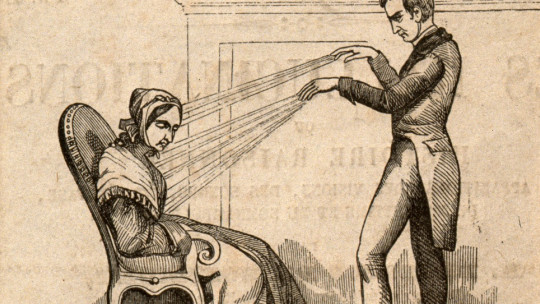If you search on the internet for “how to stop smoking”, you will find a multitude of pages and forums recommending all kinds of miraculous methods, including hypnosis.
Although there are no serious scientific studies that demonstrate the effectiveness of hypnosis to quit smoking, the gurus who try to sell it to you come out of the woodwork.
In this article I will briefly comment Why quitting smoking only with hypnosis is a myth (and a scam).
Can you stop smoking with a single hypnosis session?
If you visit any website of hypnotists, you will quickly see that they all promise you to quit smoking almost magically after a session of a couple of hours.
They assure you that through their unique method, their voice, their neurolinguistic programming skills or whatever they will “reset” your brain and eliminate your addiction to tobacco instantly.
Well, I’m sorry to disappoint you, but that’s a lie. Addiction to tobacco (and any other drug) is a complex problem, and most people who try to quit smoking have been suffering from this addiction for years (or decades). No guru can whisper magic words in your ear that will change your brain in a few minutes.
Doctors and psychologists who have studied addictive behaviors in depth know perfectly well that Overcoming tobacco addiction is a process that requires effort and putting awareness into changing day-to-day habits. apply relapse prevention strategies…
That’s why the messages from hypnotherapists who promise to solve our addiction problem without effort on our part (just take out the credit card) sound so sweet to us.
The power of group suggestion
Many hypnotherapists facilitate their hypnosis groups in hotel conference rooms. They take advantage of social biases to convince you that their method works.
An example: imagine that 100 people attend one of those hypnosis sessions to quit smoking. By mere placebo effect and a matter of statistics, probably 10 or 20 people will “quit smoking” that same day (but not forever).
The rest of the people (the majority) will not feel “the magic of hypnosis”, but they will be afraid or ashamed to admit out loud that it has not worked for them. This is what normally happens in these types of groups: if it doesn’t work for me, I think it’s my fault.
Survivor bias
As you can imagine, most people for whom hypnosis does not work (pure placebo effect) will keep it a secret. And the few people who did allow themselves to be suggested by the hypnotherapist, “jumped on the bandwagon” of motivation and stopped smoking for a few hours or a few days. They will tell everyone that hypnosis is great.
This is what we call in psychology “the survivor bias”, when a minority that has had apparent positive results is the only one that talks about the results, while those who did not achieve it do not share the information (due to shame or a feeling of failure). ).
So we get the false impression that “everyone quits smoking with hypnosis.”
Unfortunately, in the end they end up facing reality. Many people who leave a hypnosis session without smoking they end up relapsing after a few days or weeks. I know this because that is the case of many of the people who ask me for help to quit smoking, they have gone through several hypnosis sessions and still do not make progress.
Can anyone stop smoking for a couple of days with hypnosis?
Anyone can motivate themselves by watching some videos or attending a personal development event and quit smoking for a few hours or a few days.
The difficult thing is to maintain that over time. Among addiction professionals, it is considered that The threshold for considering that a person has overcome an addiction is one year without relapses. (As minimum).
Those who profit from the myth of hypnosis take advantage of these biases in scientific research. They will say that many people came out of the session “without smoking”, but they will not follow up, and will conveniently ignore cases of relapse a few days or weeks after hypnosis (the majority).
Wanting to solve our problems without effort Quitting smoking is not easy, even though Allen Carr’s famous book says so.
Most people need to understand how their addiction works what their consumption habits are like, when they smoke, with whom, where, how they feel before, during and after smoking, the role that tobacco plays in their daily life, etc.
It requires a lot of self-awareness, and above all, changes in habits and adaptation to a new context. No one can give you that with 2 hours in a hotel.
Hypnotherapists often take advantage of an almost mystical narrative to make people think that they have “special powers” or that they have access to the subconscious (which we have known for decades does not exist, despite the lies and scams of Sigmund Freud, who falsified his own cases to support his theories) .
Science shows us that hypnosis doesn’t work
If we ask the scientific community, this is what the evidence says. Hypnosis is a technique (a technique, not a therapy) that can be interesting in very specific cases, if combined with other techniques.
That is, a psychotherapist could consider using some hypnosis occasionally as part of the psychotherapy process, but never as 100% of the intervention, because that makes no sense.
Cognitive-behavioral therapy (and other variants) continues to be the method with the most scientific evidence to successfully quit smoking (and without relapses).
Psychological therapy to quit smoking
Am Luis Miguel Real , I am a psychologist and I have been working as an addiction specialist for years. I can help you quit smoking with scientifically proven methods, no magic tricks. With time and effort on your part, and the guidance of someone truly trained, you will achieve it.
If you want me to help you end your story with tobacco, contact me.









